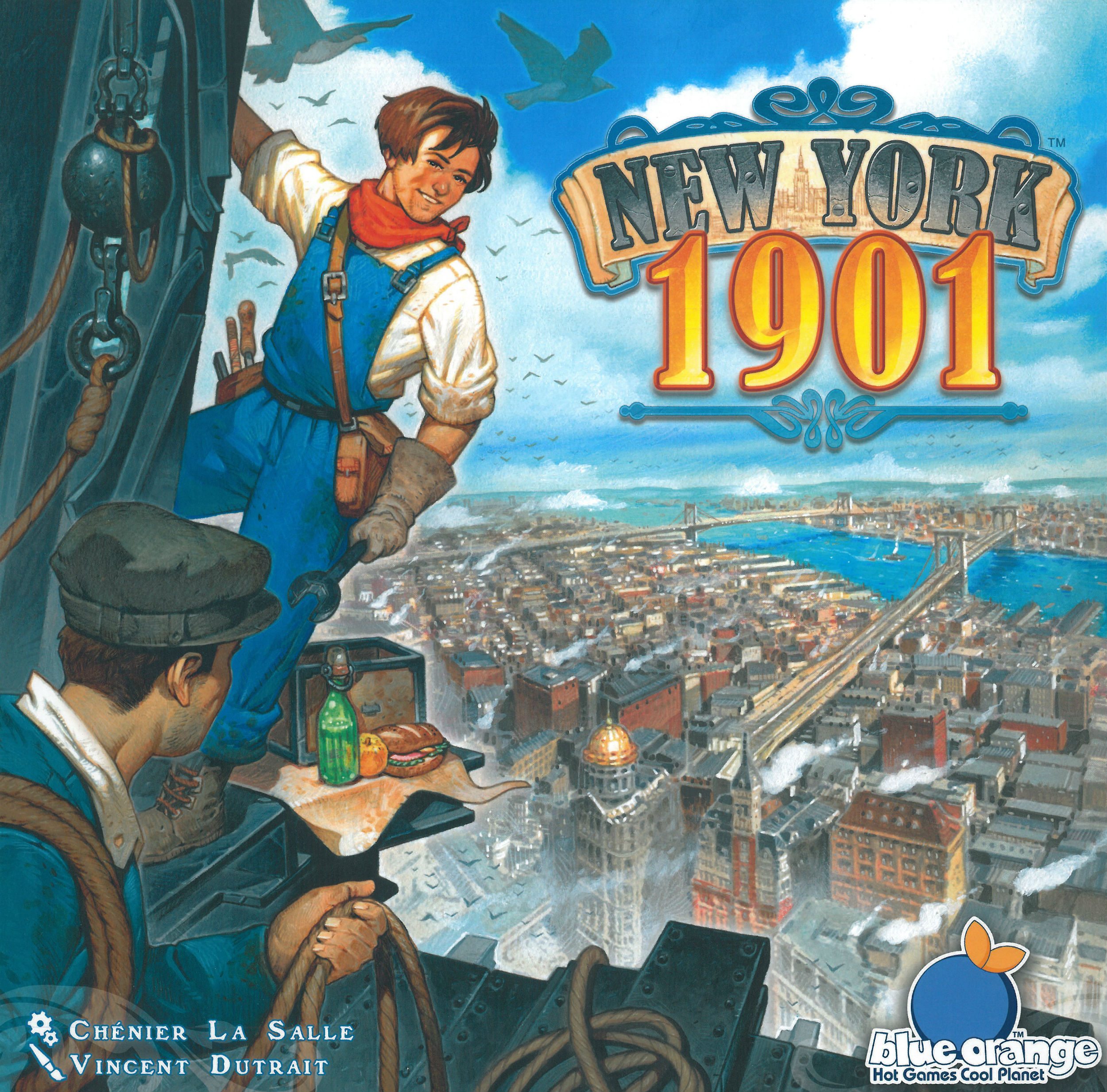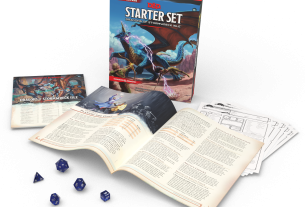If you’re really into board and card games and aren’t reading Casual Game Insider, you are really missing out. The quarterly journal always manages to succeed in providing a balance of reviews, interviews, and teasers, and there have been more than a few times that I’ve placed the magazine face-down and gone straight (Do Not Pass Go) to my computer to order (or pre-order) a game discovered in those pages.
I’ve also enjoyed writing a few articles for the magazine; the staff has always been a joy to work with, and there is no doubt in my mind that they work hard to make sure every issue delivers. The latest issue, #14 Winter 2016, just arrived in my mailbox, and I wasted no time propping my feet up on the desk and diving in. I typically read it front to back, but this time around I got stopped in my tracks by an article by Patrick R. Kelly (no relation) titled Raising a Gamer: Lessons Learned by “The Board Game Dad.” The article struck home… hard. And I believe that it will strike a chord with many GeekDad readers, too. I reached out to CGI and asked if GeekDad could reprint the article. And the kind folks at CGI didn’t disappoint. Below you’ll find the complete article. I sincerely hope you enjoy it as much as I do.
If you’d like more information about Casual Game Insider, you can visit their website or get more information on issue #14 here. A yearly 4-issue Print-&-PDF subscription is $24.99 or $6.99 individually. PDF issues can be purchased for $3.99 each.
Note: This article is reprinted with permission from Casual Game Insider. The original article appears in Casual Game Insider, Issue #14 – Winter 2016.
—–
Raising a Gamer: Lessons Learned by “The Board Game Dad”
By Patrick R. Kelly
While board games help us develop and foster laudable skills and experiences, our hobby is merely an enjoyable means to these greater ends. This is especially true when it comes to playing games with our children. Or at least, it should be.
So, rather than asking, “How do you raise a child that loves board games?” the question that I wish to take up is, “How do you use board games to raise children who know they are loved?” Short answer: “I don’t know.”
Before you write me off completely, hear me out. My children are only eleven and thirteen, so the jury is still out. However, this is an outcome to which I have focused my attention for many years. And while I do not have any proven tactics to share, I do have some insights and experiences that are worth recounting. In other words, I have made A LOT of mistakes and hopefully my failures can provide you with the guidance that I lacked.
The Game Is Not the Thing
It was early on a Friday night when my daughter brought me a battered Clue box with an expectant look in her eyes.
In a moment that will not make it onto my “father of the year” clip tape, I looked up at her and said, “You want to play a game? Cool; what do you want to play?” My daughter stared at me for a moment and then silently turned to return the box to the shelf. As I watched her turn and leave the room, I realized I had lost a moment.
As my loutish behavior shows, if you want to use board games as a way to assure your children that they are loved, whatever your gaming taste, you must be resolved to meeting your children where they are. And while this is a guideline that most board gamers initially follow, patience can wane. Most of us can feign enthusiasm for the first few games of Battleship and Candyland; however, the tenth or eleventh request to play these games is often met with groans.
Of course, like many board gamers with young children, I sought to expand my children’s gaming palette by buying and teaching them age-appropriate games that were more engaging than the old standbys. To the credit of both my children and the games’ designers, these games quickly became collection favorites and my children often asked to replay them. However, my children still asked to buy-and-play games that I found tedious and uninspired.
After what I have named “The Clue Snafu,” I decided to treat every game that I played with my kids as my favorite game. I made my answer to every board game offer a resounding “Yes!” — and every time I played, I found something to adore about the game I was playing.
Through this process I learned a few things. The first thing I learned is that any game can be made fun with a healthy dose of good-natured smack talk and the occasional in-game “side bet” that results in the losing party wearing a shaving cream beard. The second thing I learned is that kids who have fun playing “mindless” games are more likely to have fun playing heavier games. Finally, I learned that when playing games with children, very often the game is irrelevant. When my children opt to play a roll-and-move board game, a luck-based card game, or a mindless dexterity game, chances are they are more interested in talking and laughing than they are in playing.
Sometimes Parents Should Be Seen and Not Heard
It was a (different) Friday night and my daughter had invited two of her friends over to our house for a sleepover.
Throughout the years, often at my children’s insistence, I had served as occasional game master for groups of children ranging in size from two to eight. On rainy days or after night had fallen, I would often select a title for the group to play, teach the rules, and oversee gameplay. Among some of my children’s peers, I had gained a reputation as “the board game dad.”

Shortly after the girls had arrived, they asked me if I had a fun game that they could play. Pleased by the request, I pulled out New York: 1901 and proceeded to tell the girls how they could acquire plots of land and build skyscrapers. The four of us sat together and played out a game, talking and laughing throughout. As we completed the game, both of our guests asked to play again. Notably, my daughter was silent. Notwithstanding this, I consented to play another game.
Throughout the second game, my daughter was distracted. She played, but without any real focus or obvious joy she had shown during the prior game. The game eventually ended and the girls dispersed to the upstairs bathroom where they concocted exotic (and, one might say, disgusting) facial treatments from the contents of our kitchen.
The next morning, after her friends had been picked up by their parents, I asked my daughter if she enjoyed playing the game. She looked at me quite seriously and said, “I wish we had only played once.” Upon hearing this, I realized I had made a portion of her play date into my own. I recognized that I had allowed my desire to be “the board game dad” overwhelm my obligation to be “the dad.” It was a sobering and important recognition.
It is flattering to be admired, even by 12-year-olds. This is compounded by the fact that my children are proud of my hobby and how much fun many of their friends have when I teach them a new game. However, in that moment, I realized I need to be sure to put my children first. Not every moment is the right moment for a game.
After that night, when their friends asked to play a game, I privately checked in with my kids to see whether it was something that they really wanted to do. And if so, if they wanted me to participate. Very often, they didn’t. If not, I demurred and let the kids float off to another activity, fading into my appropriate place in the background.
As a result, I have played fewer games with my kids than I used to. However, when we do play, I am confident we are all enjoying the experience.
Failure is the First Step Toward Success
It was a Sunday afternoon, and my son and I were playing a game of Kemet with one of my gaming groups.
As we played, I noticed that my son was mounting a number of ill-advised attacks. As he prepared to attack another player in one of his temples, I pointed out to him that the numbers did not favor him and that his move would likely damage both him and the other player, to the benefit of the rest of the table.

In response to my uninvited instruction, my son cast a knowing look my way and said, “I am trying something, dad.”
Properly chastened, I apologized and watched his gambit play out. While his initial combat ended as predicted, I came to realize that he was trying to draw an opponent to that temple so that he could set up a later attack at another location on the board. In fact, as I looked back upon the game, I realized that all of his attacks had been variations of this tactic. While his efforts were unsuccessful, his gentle rebuke showed me that, when it came to game play, my boy was his own man.
This moment prompted me to reflect upon a difficult truth. I realized that if I did my job correctly, my guidance was eventually going to become unnecessary. When we play games with our children, we walk a delicate balance between teaching them how to play well, and letting them play well. Early on, we have to walk our children through the choices they can make within the context of a game. We point out options and help them figure out which one will produce a desired result.
However, eventually we have to take a step back and let them make their own choices. Sometimes, we have to let them make choices that we wouldn’t. Sometimes, we have to watch them fail, fully aware of the impending outcome. Sometimes, we have to watch them blunder along, silent and confident that they either know what they are doing or will learn from the experience.
One of the key ways that we show children love through board games is letting them learn to succeed at playing them – without our guidance, instruction, or intervention. Board games are a laboratory for decision making, critical thinking, taking chances, and much more. In order to make games fun and rewarding, we have to give them the basic tools for developing their own play style and then get out of the way.
Of course, this is the lesson that lies at the heart of parenting. Parenting is about pointing our children in the right direction: teaching them the rules of the game, offering a few tips about how to navigate those rules, and then letting them develop their own style of play. You have to let them try new tactics, and occasionally you have to let them fail, so that they employ a better strategy in the future.
As I previewed at the start of this article, each of these lessons I had learned from the mistakes I made. However, there is one final lesson that I have learned from all of this: I have found, as with board games, when it comes to parenting, success derives from identifying failing strategies and refining them. I have to be honest with myself about my errors. I have to be confident enough in my skills to try again. And above all, I have to keep my central objective in mind: raising children who never doubt they are loved.






James, thank you for re-posting the article.
Thank you also for all that you do in supporting those of us (dads or otherwise) who know that the greatest and most rewarding hard thing we will ever do is raise our kids. There is something unique and special about being a “geek dad.” It seems to me, that those of us that proudly wear that moniker know that there is value in showing our kids that it is ok to be passionate about a thing that give us joy. It is ok to define ourselves, rather than letting others do it for us. It is ok to embrace play. It is ok to value community.
Keep up the great work in being a source of information, inspiration, and support.
What a great reading!
My son was only 5 when he asked to play Agricola “with the true rules”. One of his first action in the game was to take a single reed. I explained to him how poor his choice was, and pointed several options that I considered a much better use of his turn. Then he looked at me and explained “It is to feed the animals”.
It made me realized that my son was a very little kid, that he had half the age to play this complex game, and that he was playing in an adorable way. He had an imagination that I have lost decades ago, and it made me feel nostalgic. I made the decision to never discuss his choices again during games.
Maskounet, I can completely agree with you. My daughter was the same way when she started playing games. It created the gateway for me to teach her about games, and rules.
When my daughter was old enough to learn the rules to games I told my wife three things:
1) I will not “Let” her win(my wife disagrees with me about this even to this day). I even told my daughter I wont hand her a victory to make her feel better. I don’t believe in participation medals, or awards. It undermines the value of playing well, and teaches nothing about how to play the game, be a gracious winner, or more importantly a gracious loser. Now when she wins, she knows she earned it. Last night a game Turbo Rally: Thunder Track came down to the last spot before the finish. She won, and knew she earned it.
2) I will let her make mistakes, and capitalize on them. After the game(or round depending on the game) I tell her where she went wrong, and go over what she could have done differently. Now at 9 years old, she regularly gives me a run for my money.
3) It’s a game, it’s about having fun first and foremost. If she throws a fit because she is losing, or doesn’t feel like it’s fun anymore it gets put away. No questions, no arguments. Doesn’t matter if it’s just been setup, in the middle, or the last round. This goes for board games, video games, and just about everything else we do as a group or she does on her own. This one took the longest for her to learn, but in the end in everything she does, not just games, she is more patient and always gracious when losing. In the end; it’s a game, and the result doesn’t really matter as long as she had fun.
With those things in mind, my daughter has learned dozens of games, attends PAX East with me, and is learning how to play RPGs. I count myself as very lucky to have a daughter as awesome as she is. I hope you all have the same experiences with your kids.
My 2 year old son on the other hand, is a human hurricane… I have no idea what I’m going to do with him.
I have a harder time introducing my son’s friends to board games. In this digital they are used to instant feedback or graphical simulation. Dine kids have really never played board games so have an instant aversion to it. I found some kids are just to hyper to teach (still trying to figure out if this a solvable problem). Others have to have distractions removed (no video games or tv on) after that they realize how fun the game is. I have had some success introduction groups of kids but find it easier to teach them one by one. I’m hoping this will change when they get older.
As a gamer dad, it’s hard to leave my opinions about monopoly at the door, but the sacrifice is always worth it.